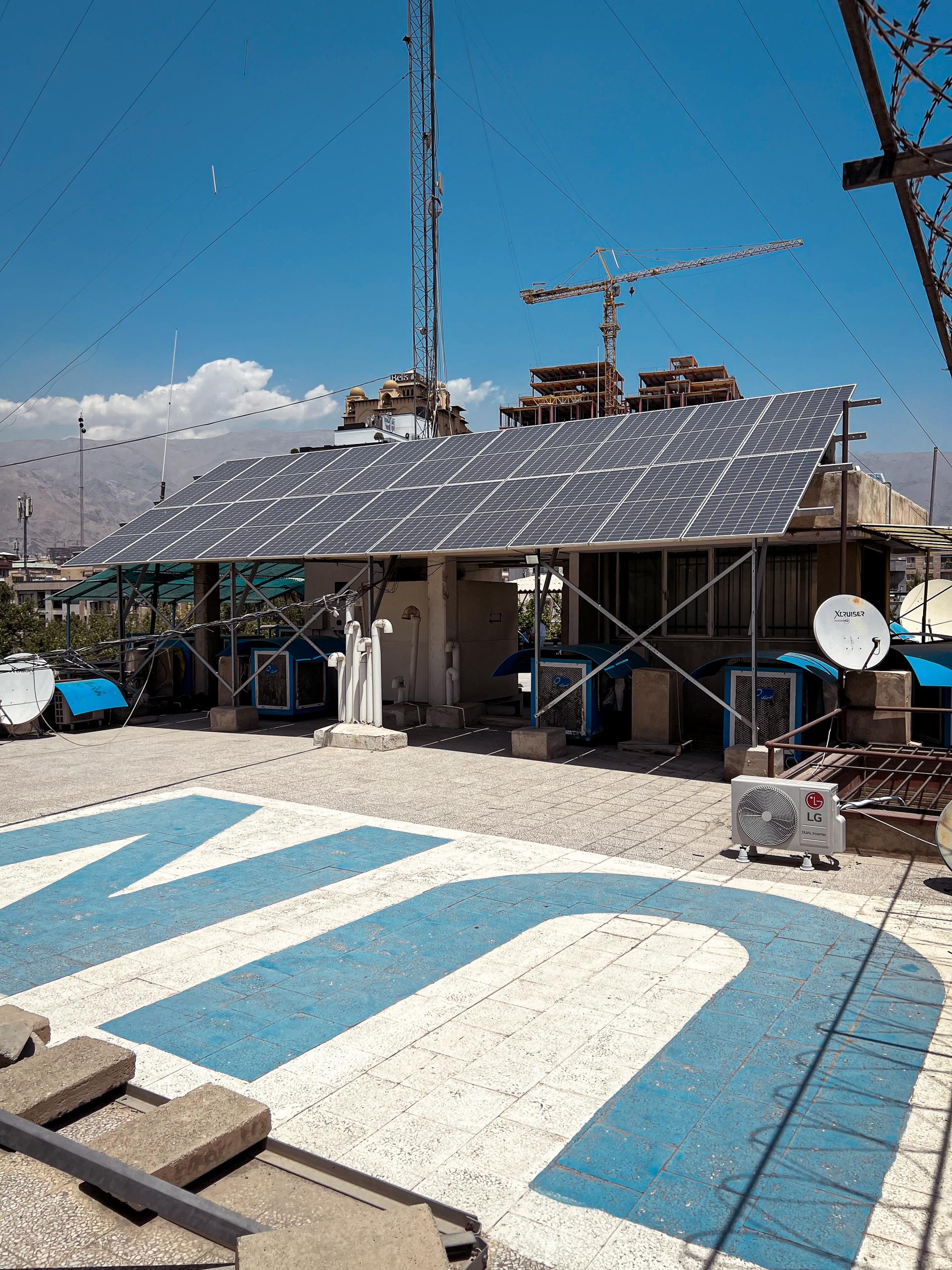By embracing greener buildings and electric vehicles
Advancing energy efficiency at UNDP Iran
August 13, 2024

In Tehran, the introduction of fully electric motorbikes for parcel and delivery services stands out as an innovative step.
In Iran, the energy sector is the largest contributor to carbon emissions. Within this sector, the building sector consumes 34% of total energy, closely followed by the transportation sector. These sectors exert significant pressure on energy resources and contribute substantially to carbon emissions. Recognizing these challenges, UNDP Iran has spearheaded transformative initiatives in sustainable energy and operational efficiency at UN facilities, in line with UNDP’s Greening Moonshot commitment to reduce UNDP’s operational carbon footprint by 50% by 2030, alongside the Smart UN Facilities framework and the Global Goals.
Furthermore, as part of its commitment to sustainable transportation, the Country Office has transitioned its fleet to hybrid and electric vehicles. Notably, the introduction of fully electric motorbikes for parcel and delivery services stands out as an innovative step. Each motorbike is equipped with dual batteries capable of covering 110 km (about 68.35 mi), effectively reducing office car usage and emissions by 75%. This initiative not only improves efficiency but also mitigates traffic congestion during peak hours, underscoring UNDP Iran's leadership in sustainable practices. Moreover, the urgent need to switch to electric vehicles in big cities and mitigating air pollution in a city regularly experiencing smog highlights the critical role of clean transport and energy solutions in promoting healthier urban environments.
Implementing the above-mentioned measures is estimated to reduce 37.75 tons of CO2e annually. This reduction is equivalent to 24% of the estimated yearly CO2 emission of the UN building. According to internal UNDP data, these initiatives are already making an impact, having reduced the annual carbon footprint by nearly 28% from 2018 levels.
“Despite subsidized and cheap energy in Iran as oil exporting country with enormous resources of fossil fuels, our commitment to global responsibility drives us to consume less fossil fuels and emit less carbon. By implementing measures like improving heating and cooling, switching to renewable energy sources and saving energy in our building as well as promoting clean transportation, we uphold our pledge to sustainable development and environmental stewardship.” Said Alireza Mohammadi, Project Manager at UNDP Iran.
A cornerstone of these efforts has been the installation of solar energy systems and adoption of energy efficiency solutions. For instance, the installation of 11.55-kilowatt peak (kWp) solar panels on the UN building's rooftop not only reduces the facility's carbon footprint by 7.75 tonnes of CO2 equivalent (CO2e) annually but also minimizes reliance on the power grid, ensuring uninterrupted operation of critical services.
In addition to solar power, UNDP Iran has implemented comprehensive energy efficiency measures. These include retrofitting and upgrading the central heating system, deploying a smart temperature control system, upgrading lighting infrastructure, and optimizing cooling systems. These measures collectively enhance operational sustainability while significantly reducing energy consumption and carbon footprint.

The solar panels on the UN building's rooftop reduce the facility's carbon footprint by 7.75 tonnes of CO2 equivalent {CO2e} annually.
The integration of a solar energy system and energy efficiency measures within UN buildings exemplifies our commitment to curbing energy consumption and carbon emissions in the building sector. Furthermore, the application of electric motorbikes underscores our proactive approach towards reducing emissions from transportation, thereby addressing another critical area of energy consumption while contributing to less air pollution in a megacity like Tehran, the capital city of Iran. These initiatives not only align with global sustainability goals but also serve as a practical demonstration of responsible environmental stewardship.

The solar energy system exemplifies our commitment to curbing energy consumption and carbon emissions in our operations.

 Locations
Locations